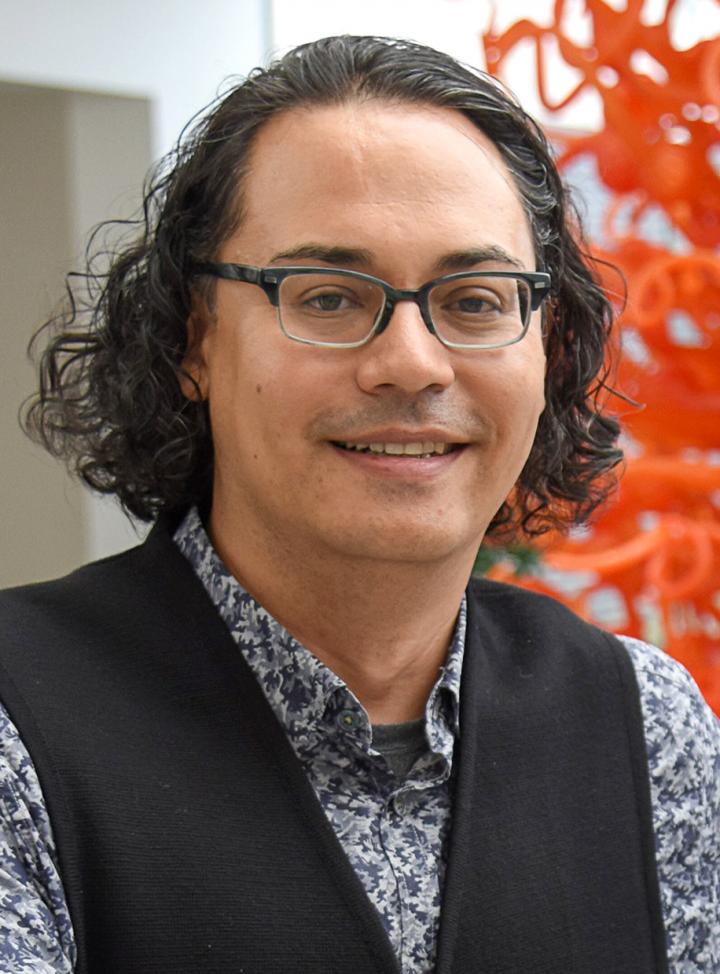
Credit: UTSW
DALLAS – June 17, 2019 – The increasing sophistication of cancer treatments threatens to outpace the ability of health care providers to enroll patients in clinical trials to test those therapies. That’s a key finding by researchers in UT Southwestern’s new Department of Population and Data Sciences.
The authors of the study published this month in the Journal of Clinical Oncology investigated why many cancer clinical trials fail to enroll enough patients. The researchers sought to identify potential interventions – i.e., solutions – to improve the situation.
Research in the Department of Population and Data Sciences investigates ways to improve health care delivery on a population level. Its studies often involve breaking a problem into its component steps, identifying potential barriers at each step, and developing a list of possible interventions for future study. In this specific project, the researchers approached suboptimal clinical trial enrollment – a significant national concern – as a health care delivery issue.
“Cancer clinical trials are meant to result in treatment advances. However, their potential benefits are diminished by suboptimal trial participation, both by patients and by clinicians and their organizations,” said Dr. Celette Sugg Skinner, Chair and Professor of Population and Data Sciences and corresponding author of the study. Dr. Skinner is also a member of the Harold C. Simmons Comprehensive Cancer Center and holds the Parkland Community Medicine Professorship.
Nearly half – 40 percent – of cancer trials fail to reach targets for accrual, the medical term for the number of patients who have completed or will complete the trial. Fewer than 2 percent of adults with cancer enroll in trials, and last year no trials were offered in 36 percent of physician-owned and 14 percent of hospital-owned oncology practices, she said.
In order to help ensure results will reach statistical significance, clinical trials are designed to enroll a calculated number of patients, she explained. “Before we can figure out how to improve accrual in trials, we need to better understand the entire process and challenges along the way.”
To gain this understanding, lead author Dr. Simon Craddock Lee, Associate Professor in the Department, conducted in-depth interviews with 10 key oncology physicians, nurses, and research staff in leadership positions across nine states.
“Nationally, we know there are large numbers of cancer patients and relatively few of them are in clinical trials,” Dr. Lee said. “Most of the research to date has focused on the idea that the problem must be that patients don’t know about clinical trials.”
That mindset led to a research emphasis on improving communication so that patients are aware of trials and understand the risks and benefits as well as reaching out to underrepresented populations and ensuring messages are culturally appropriate – all worthy goals. However, this study identifies another group of problems, he explained.
The researchers found that emerging therapies and the changing landscape of oncology have introduced complexity, he continued. Specifically, oncology practices encounter barriers to (1) staying aware of available trials, (2) identifying eligible patients, (3) introducing the idea of trial participation vs. standard treatment to those patients, and (4) enrolling and caring for them throughout clinical trials.
These steps have become more complicated due to emerging discoveries in the realm of precision oncology, which seeks to determine the best treatment based on patient genetic, environmental, or lifestyle factors. For example, whereas trials in the past would enroll all patients with stage 2 breast cancer, current trials often are designed to enroll only patients with certain biomarkers.
“As eligibility criteria become more numerous and specific, the likelihood of any patient meeting all criteria goes down,” Dr. Lee explained. “Because oncology practices are not reimbursed for determining and documenting enrollment, trial accrual is threatened as these tasks become more costly and time-consuming.”
The authors suggest that addressing challenges to trial accrual may involve changes in trial-specific reimbursement, as well as incentives for administrative and infrastructure costs.
“Our next goal must be to enhance logistic, infrastructure, and policy support to translate oncology discoveries into high-quality cancer care,” said co-author Dr. David Gerber, a Professor of Internal Medicine and Population and Data Sciences. Dr. Gerber serves as Associate Director for Clinical Research and co-Leader of the Experimental Therapeutics Program in the Simmons Cancer Center.
The researchers will use this study to guide future investigations. Most immediately, they have surveyed more than 1,000 oncology providers, asking in-depth questions about the barriers identified in this study. Findings from that survey will help to identify strategies to ensure that clinical trials enroll the targeted number of patients.
###
About UT Southwestern Medical Center
UT Southwestern, one of the premier academic medical centers in the nation, integrates pioneering biomedical research with exceptional clinical care and education. The institution’s faculty has received six Nobel Prizes, and includes 22 members of the National Academy of Sciences, 17 members of the National Academy of Medicine, and 15 Howard Hughes Medical Institute Investigators. The full-time faculty of more than 2,500 is responsible for groundbreaking medical advances and is committed to translating science-driven research quickly to new clinical treatments. UT Southwestern physicians provide care in about 80 specialties to more than 105,000 hospitalized patients, nearly 370,000 emergency room cases, and oversee approximately 3 million outpatient visits a year.
Media Contact
Deborah Wormser
[email protected]
Original Source
https:/




